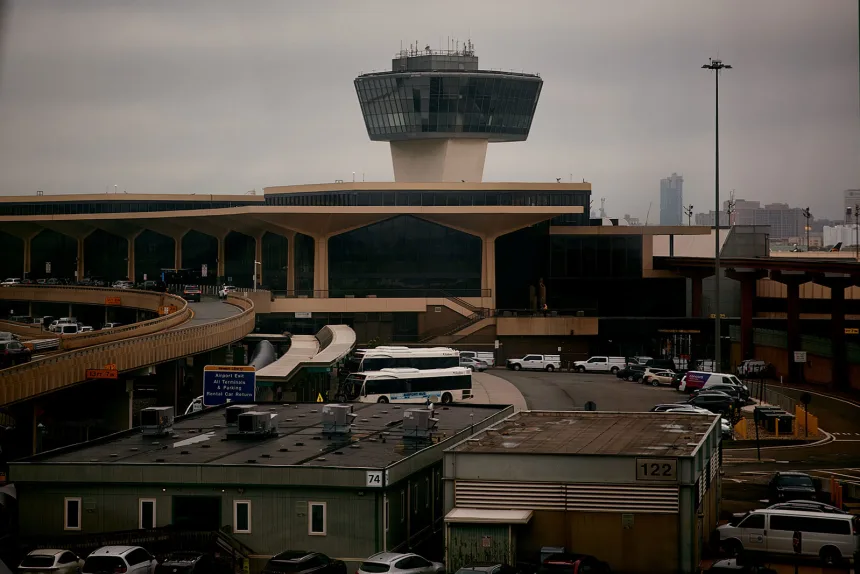Newark Airport systems outage was ‘most dangerous situation,’ air traffic controller says 
Airport Systems
Newark Airport Systems Outage Was ‘Most Dangerous Situation,’ Air Traffic Controller Says
The air traffic system failure at Newark Liberty International Airport on April 28 was described as “the most dangerous situation you could have,” according to an air traffic controller on duty during the incident. The outage has caused massive disruptions and brought renewed attention to the airport’s outdated air traffic control system.
Widespread Impact
The drop in communications at the Philadelphia air traffic control facility led to thousands of canceled flights. The Federal Aviation Administration (FAA) reported average delays of four hours for arrivals at Newark as of Tuesday evening and indicated that disruptions are expected to continue.
The controller, speaking anonymously to CNN, said the environment was “hectic” after returning from a break. “We were trying to figure out what’s working, what’s not.”
System Vulnerabilities
The outage affected radar data from a facility in Westbury, New York, which is now remotely linked to Philadelphia. This setup, described by one source as “a long extension cord,” relies on a single, non-redundant data feed.
“We’re under the impression that there’s a single stream that’s coming in that carries both radar and radio communication,” the controller said. The feed had previously failed at least twice, raising serious concerns.
Near Miss Over LaGuardia
In one of the earlier incidents, the controller said a FedEx MD-11 aircraft lost communication and overshot its final approach into Newark, entering crowded airspace over LaGuardia Airport — a near disaster.
With multiple controllers now on trauma leave and a national shortage of air traffic staff, this incident has sparked calls for urgent infrastructure upgrades and system redundancy to prevent future breakdowns.
Newark Airport Systems Outage Was ‘Most Dangerous Situation,’ Air Traffic Controller Says
The air traffic system failure at Newark Liberty International Airport on April 28 was described as “the most dangerous situation you could have,” according to an air traffic controller on duty during the incident. The outage has caused massive disruptions and brought renewed attention to the airport’s outdated air traffic control system.
Widespread Impact
The drop in communications at the Philadelphia air traffic control facility led to thousands of canceled flights. The Federal Aviation Administration (FAA) reported average delays of four hours for arrivals at Newark as of Tuesday evening and indicated that disruptions are expected to continue.
The controller, speaking anonymously to CNN, said the environment was “hectic” after returning from a break. “We were trying to figure out what’s working, what’s not.”
System Vulnerabilities
The outage affected radar data from a facility in Westbury, New York, which is now remotely linked to Philadelphia. This setup, described by one source as “a long extension cord,” relies on a single, non-redundant data feed.
“We’re under the impression that there’s a single stream that’s coming in that carries both radar and radio communication,” the controller said. The feed had previously failed at least twice, raising serious concerns.
Near Miss Over LaGuardia
In one of the earlier incidents, the controller said a FedEx MD-11 aircraft lost communication and overshot its final approach into Newark, entering crowded airspace over LaGuardia Airport — a near disaster.
With multiple controllers now on trauma leave and a national shortage of air traffic staff, this incident has sparked calls for urgent infrastructure upgrades and system redundancy to prevent future breakdowns.







